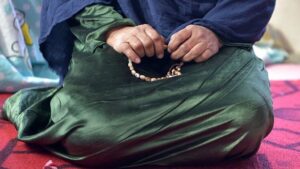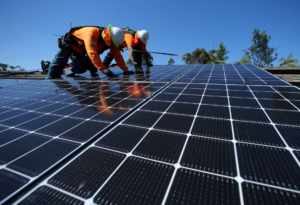Editor’s note: This article is part of Just Security’s Symposium, International Law in the Face of Russia’s Aggression in Ukraine: The View from Lviv.
Step by step, Ukraine is pursuing justice before the World Court. Since 2014, Russia has violated Ukraine’s sovereignty and attacked Ukraine’s people, with utter contempt for the international legal order. Faced with Russia’s brazen disregard for international law, Ukraine had a choice: to embrace the rule of law and the international institutions charged with upholding it, or to allow Russia’s contempt for international law to go unchecked. Ukraine chose to put its faith in international law, and to pursue its rights under several international treaties. That decision – to counter Russia’s aggression in the courtroom, as well as the battlefield – has led to a pivotal moment for the rule of law and the international legal order.
When we gathered as international law experts in Lviv, Ukraine, in December 2023 on the anniversary of the Genocide Convention and the Universal Declaration of Human Rights, we spoke of Ukraine’s two historic cases before the International Court of Justice (ICJ). We spoke of the importance of each step on the path towards justice: the ICJ’s binding orders on provisional measures have provided moral clarity and have served as a foundation for international accountability; the Court’s findings on jurisdiction have paved the way for the first merits hearings against the Russian Federation in the Great Hall of Justice.
Ukraine’s Cases at the ICJ
Since 2017, Ukraine’s legal cases before the ICJ have placed a spotlight on Russia’s hypocrisy when it comes to international law.
Terrorism Financing and Racial Discrimination
Ukraine’s first case under the International Convention for the Suppression of the Financing of Terrorism (Terrorism Financing Convention) and the International Convention on the Elimination of All Forms of Racial Discrimination (Racial Discrimination Convention) focused on Russia’s support for terrorism financing in eastern Ukraine and its attack on the human rights of the Ukrainian and Crimean Tatar communities in temporarily occupied Crimea. Ukraine’s case documented the campaign of terror against the Ukrainian people beginning in 2014, when Russia’s proxies targeted ordinary Ukrainians, shelled civilian areas, bombed peaceful cities, and shot down Malaysian Airlines flight MH17, all made possible by money and weapons flowing from the Russian Federation. Ukraine’s case also documented Russia’s discrimination against the Ukrainian and Crimean Tatar communities in occupied Crimea since 2014, including forced disappearances, arbitrary searches and detentions, crackdowns on culture and gatherings, and the banning of the Mejlis (a representative body) of the Crimean Tatar people.
Russia had tried to thwart the case – it urged the Court not to order provisional measures when the case was first launched, and it lost. Russia tried to have the case thrown out on jurisdiction, and it lost. And on the merits Russia tried to avoid liability and it lost.
In a Jan. 31 judgment, the ICJ ruled that the Russian Federation had violated international law in three separate respects: Russia violated the Terrorism Financing Convention, Russia violated the Racial Discrimination Convention, and Russia violated the binding provisional measures order issued earlier in the case. This was an important marker on the path to accountability: it is the first case since the ICJ’s inception in 1946 that has found the Russian Federation in violation of international law.
Of course, it is ultimately up to the ICJ to decide what kind of justice it delivers. In Ukraine’s case under the Terrorism Financing Convention, Ukraine alleged that Russia, rather than taking measures to stop terrorism financing, let its officials send money and weapons to illegal proxy groups that the U.N. described as implementing a “reign of intimidation and terror” in eastern Ukraine. The ICJ found that Russia violated the Terrorism Financing Convention by failing to cooperate in investigations related to this terrorism financing.
But in a puzzling aspect of the Court’s decision, it found that weapons are not covered by the Convention’s special definition of “funds,” which is defined in Article 1(1) as “assets of every kind.” Weapons are of course an “asset,” just like a piece of real estate is an “asset.” According to a majority of the Court, however, the asset only falls under the Convention if it is provided for its monetary value. The Court drew a distinction between “resources provided or collected for their monetary and financial value” and “the means used to commit acts of terrorism, including weapons or training camps.” So if real estate is provided to a terrorist group so the group can then sell the real estate (or use it as collateral for a loan) in order to buy weapons from the proceeds, the real estate becomes an “asset” used to fund terrorism. But if the terrorism funders just directly provide the weapons used to commit acts of terrorism, those weapons are not “assets of any kind” and escape regulation under the Terrorism Financing Convention.
As a result of this interpretation of “assets of every kind,” the Court did not reach many of Russia’s most egregious actions, including the provision of the BUK missile that shot down flight MH17 and the shells that rained down on innocent Ukrainian civilians in Volnovakha, Mariupol, and Kramatorsk in 2015.
Similarly, the Court read the Racial Discrimination Convention’s prohibition on racial discrimination narrowly. The Court recognized the Ukrainian and Crimean Tatar communities as protected groups under the Convention and found that Russia had violated the treaty by discriminating against education in the Ukrainian language. But the Court determined that Russia’s other actions restricting the rights of these groups in Crimea: the disappearances, murders, abduction, and torture; the suppression of Crimean Tatars through a ban on the Mejlis; the arbitrary searches and seizures; the suppression of culturally significant gatherings; media harassment; and the degradation of cultural heritage were all politically, rather than racially, motivated.
The Court seemingly ignored Russia’s well-known desire to wipe out Ukrainian culture and Russia’s history of Crimean Tatar persecution dating back to Stalin and the end of the 18th century. Ultimately, while the Court acknowledged the many atrocities Russia has committed against protected groups in Crimea, it considered that political repression, not racial discrimination, was Russia’s paramount motive – hardly an exoneration of Russia. According to the Court, while the ethnic Ukrainian and Crimean Tatar communities were protected minorities, “any disparate adverse effect on the rights of Crimean Tatars and ethnic Ukrainians can be explained by their political opposition to the conduct of the Russian Federation in Crimea.” The majority did not account for the fact that policies restrictive of human rights can have multiple motivations, and that targeting minority groups and suppressing political opposition are not mutually exclusive.
Allegations of Genocide
In Ukraine’s second case, Russia’s track record has been no better. It lost on provisional measures at the beginning of the case. And it recently lost again on jurisdiction. With the United Nations Security Council crippled by Russia’s veto, Ukraine has again put its faith in the World Court to deliver accountability and justice. And that path to accountability remains open.
Ukraine has claimed under the Genocide Convention that Russia’s February 2022 full-scale invasion was based on a lie – the absurd lie that Ukraine itself was committing genocide against its own people. In the Allegations of Genocidecase, an unprecedented 32 State Parties to the Genocide Convention participated in the proceedings and supported ICJ jurisdiction.
In its Feb. 2 judgment, the ICJ concluded, over Russia’s objection, that it had jurisdiction over the dispute that Ukraine brought to the Court just days after Russia launched its full-scale invasion nearly two years earlier. The Allegations of Genocide case will therefore proceed to the merits phase. On the merits, Ukraine will expose the lies Russia used to justify continuation of its unlawful military aggression in February 2022. The ICJ also dismissed one of Ukraine’s claims, finding that Russia’s use of force based on an abusive claim of genocide is an issue that falls outside of the Genocide Convention.
Russia’s use of force, however, remains before the ICJ. The reason is the Court’s provisional measures order of March 16, 2022, which ordered Russia to “immediately suspend the military operations that it commenced on 24 February 2022 in the territory of Ukraine.” That order, which was undisturbed by the Court’s recent ruling on jurisdiction, is an integral part of the ongoing case against Russia.
When the Court hears Ukraine’s case on the merits, it will have to decide whether Russia has complied with the Court’s provisional measures order, which is binding under international law. And, without a doubt, Russia has acted in violation of that order every day for the last two years. Not only is that a violation of international law, but it is a violation for which Russia has an obligation to make reparations to Ukraine.
Accountability is a key pillar of Ukrainian President Volodymyr Zelenskyy’s Peace Formula. And, speaking specifically about Russia’s independent obligation to comply with provisional measures, the ICJ has observed that “it is well established in international law that the breach of an engagement involves an obligation to make reparation in an adequate form.” The ICJ has shown that it can hold Russia accountable. It also has the responsibility to compensate Ukraine for the grave harm to the Ukrainian people resulting from Russia’s unlawful conduct.
A Structure of Accountability
As a result of these narrow interpretations of the treaties at issue, some have argued that the World Court’s judgments simply delivered a slap on the wrist to Russia rather than the appropriate level of accountability and justice. Why, then, go to the ICJ?
Because Ukraine’s choice remains the same: to embrace the rule of law and accountability, or to leave Russia’s contempt for international law unchecked. And Ukraine is building a structure of accountability brick-by-brick. In Ukraine’s first case against Russia, the Court declared Russia a law-breaker for the first time in history, and notably held Russia responsible for violating the provisional measures order in that case. This solidified as a legal matter that Russia’s violation of a binding provisional measures order is an independent violation of international law. Ukraine will show the Court in the Allegations of Genocide case that Russia has once again displayed contempt and disregard for a binding order of the Court, this time it will be the Court’s order that Russia halt its military aggression in Ukraine. And Ukraine will demand appropriate reparations for this flagrant violation of international law.
Ukraine has chosen not to sit idle in the face of Russia’s many violations of international law. It will continue its fight for accountability and justice using every possibility, including before the ICJ, where the rule of law stands firmly with Ukraine.
This post reflects the views of the authors and not necessarily those of any institution with which they are now or have been affiliated.




